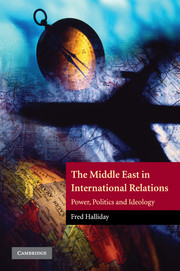Book contents
- Frontmatter
- Contents
- List of maps
- List of tables
- Acknowledgements
- Introduction: world politics, the Middle East and the complexities of area studies
- Part I Concepts, regions and states
- Part II History
- Part III Analytic issues
- 6 Military conflict: war, revolt, strategic rivalry
- 7 Modern ideologies: political and religious
- 8 Challenges to the state: transnational movements
- 9 International political economy: regional and global
- Part IV Conclusion
- Appendices
- Select bibliography
- Index
8 - Challenges to the state: transnational movements
Published online by Cambridge University Press: 05 September 2012
- Frontmatter
- Contents
- List of maps
- List of tables
- Acknowledgements
- Introduction: world politics, the Middle East and the complexities of area studies
- Part I Concepts, regions and states
- Part II History
- Part III Analytic issues
- 6 Military conflict: war, revolt, strategic rivalry
- 7 Modern ideologies: political and religious
- 8 Challenges to the state: transnational movements
- 9 International political economy: regional and global
- Part IV Conclusion
- Appendices
- Select bibliography
- Index
Summary
The state and beyond: three general perspectives
It did not take the growth of the Muslim Brotherhood after 1928, the rise of the Palestinian resistance movement in the late 1960s or the events of 11 September 2001 to show that, as agents of political change in the region, Middle Eastern states are far from being alone. This was a recurrent theme in the earlier chapters of this volume on history, and on war and conflict. As with those elsewhere, Middle Eastern states may aspire to control relations between themselves and to limit the influence of other states on their own. The very incidence of war and the salience of security concerns ensure that this is so. However, forces other than the state, the non-state and the ‘transnational’, in the sense of that which links societies without going through states, are recurrently important, and indeed seek to use states, regional and international, to further their ends.
In pre-modern as well as contemporary periods, transnationalism is therefore an integral part of the regional politics. It is also central to contemporary debate in IR. International Relations has, in recent years, been increasingly concerned with the issue of transnational forces and movements, understood therefore as those which, beyond the domain of the state as normally construed, influence the policies of states and their outcomes.
- Type
- Chapter
- Information
- The Middle East in International RelationsPower, Politics and Ideology, pp. 229 - 260Publisher: Cambridge University PressPrint publication year: 2005



